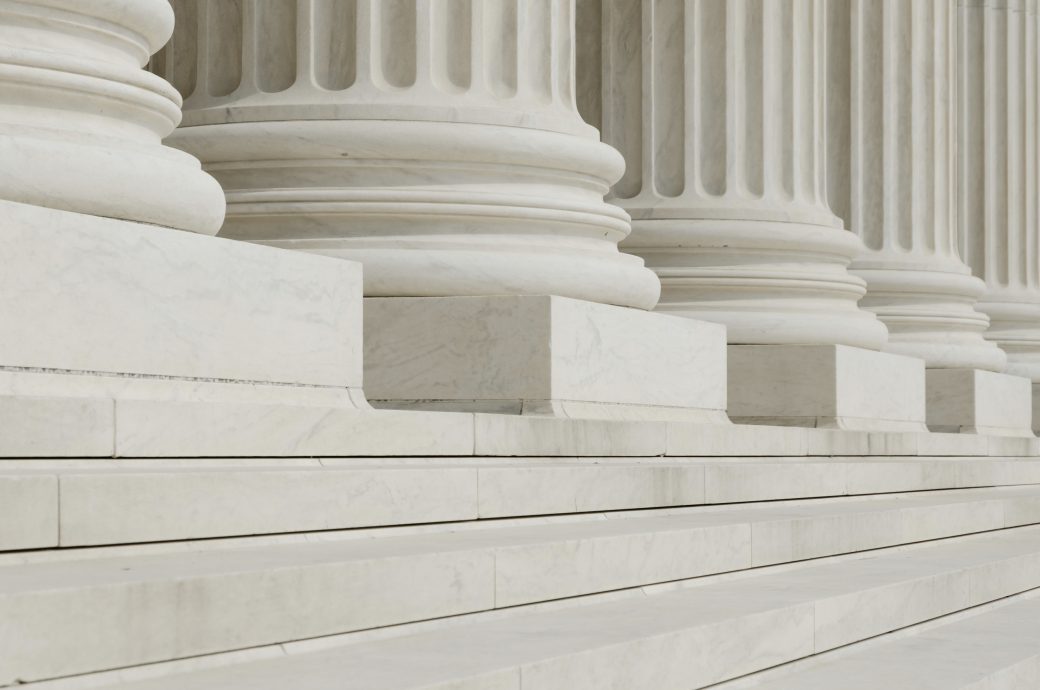Tradition and Going Topless
Last month, a three-member panel of the U.S. Court of Appeals for the Seventh Circuit handed down an important decision in Tagami v. City of Chicago, the “GoTopless” case, a constitutional challenge to a Chicago public nudity ordinance that prohibits women, but not men, from appearing topless in public. The court upheld the ordinance by a vote of 2 to 1. The debate between Judge Diane Sykes, who wrote the majority opinion, and Judge Ilana Rovner, who wrote the dissent, offers fascinating insight into the role of tradition in constitutional law.
The case concerns an organization, GoTopless, that advocates women’s right to bare their breasts in public. Founded by the members of a Canada-based UFO religion known as Raëlism, this group sponsors an annual “GoTopless Day” on which it encourages women to uncover their chests in public as a statement for equality—why should it be acceptable for men, but not women, to do this?
Other such groups exist. One in New York City promotes topless women’s book clubs in public parks. (Women already have the legal right to go topless in the state of New York , thanks to a 1992 state court decision, but one very rarely encounters anyone exercising this right—which suggests that New Yorkers should receive more credit for common sense than outsiders typically give us.)
The plaintiff, an activist named Sonoko Tagami, uncovered her breasts as part of Chicago’s GoTopless Day in 2014. A police officer issued her a ticket, and she was eventually convicted of a misdemeanor and fined $100. She contested her conviction on constitutional grounds, arguing that it violated the Free Speech Clause of the First Amendment, because it restricted her expression, and the Equal Protection Clause of the Fourteenth Amendment, because it impermissibly discriminated against women. The district court summarily dismissed her case, and she appealed.
The Seventh Circuit rejected both of Tagami’s claims. With regard to the Free Speech claim, Judge Sykes wrote, even assuming her conduct qualified as expression within the protection of the First Amendment, an important governmental interest justified the ban on women appearing topless in public. “Traditional moral norms,” she wrote, protect “unwilling members of the public—especially children—from unwanted exposure to nudity.” Tagami argued that the city must demonstrate exactly how the ordinance promoted morality, but Judge Sykes disagreed. “Chicago’s ordinance,” she wrote, “has existed in one form or another for decades” and “its essential purposes—promoting traditional moral norms and public order” are “self-evident.”
This self-evident interest in promoting traditional norms justified different public nudity standards for women and men, she continued. Under the Fourteenth Amendment, discrimination on the basis of sex is not always unconstitutional. The government may apply different rules to women and men where it has important objectives and it chooses means that substantially relate to those objectives. Once again, the government’s interest in promoting traditional social norms about public nudity was obvious. Tagami’s equal protection claim failed as well.
In dissent, Judge Rovner maintained that the city should have been required to offer more evidence to justify the ordinance. The city’s claim, she wrote, “boils down to a desire to perpetuate a stereotype that female breasts are primarily the objects of desire, and male breasts are not.” This was, said Judge Rovner, just a cultural phenomenon to which the law should not defer. “It is true that in our society female breasts have been sexualized as objects of desire while the breasts of men have not,” she conceded. But “no biological basis for this distinction” exists, and cultural standards could not themselves justify restrictions on public expression.
She went on to say that traditional standards of propriety could not justify different rules for men and women appearing topless in public. “Any invocation of tradition and moral values in support of a law that facially discriminates among classes of people calls for a healthy dose of skepticism” since “historical norms are as likely to reflect longstanding biases as they are reasonable distinctions,” wrote Judge Rovner. In support she cited two gay rights decisions by the Supreme Court, Obergefell v. Hodges (2015) and Lawrence v. Texas (2003), and its 1992 decision upholding the constitutional right to abortion, Planned Parenthood v. Casey.
Three quick observations about this case, the first about the majority opinion and the next two about the dissent.
First, Judge Sykes’s opinion suggests that, even after cases like Obergefell, Lawrence, and Casey, tradition continues to have an important place in constitutional law. It’s true those decisions held that traditional moral norms cannot serve as a legitimate basis for law, at least not where they infringe on personal identity or the individual’s search for meaning. But it’s also true, as the late Justice Scalia and others repeatedly pointed out in response, that the Court cannot possibly have meant what it said. Too much law relies on traditional morality as a justification; to deny that tradition can legitimate law would throw our legal system into chaos. Judges will need to find some way to distinguish between those cases where traditional norms can serve to justify state action and those where they cannot. Judge Sykes’s opinion, which suggests that traditional norms can still govern questions of “public order,” is perhaps a start.
Second, Judge Rovner’s dissent suggesting that the law should follow biology rather than culture is misleading. Of course rules regarding public nudity are a cultural phenomenon. Culture is, among other things, a reflection on human biology; different cultures have different perceptions. In some cultures women appear topless in public; in others they do not. Allowing women to appear topless in public is not to substitute biology for culture, but rather to replace one culture with another—a culture that sees public nudity as appropriate for one that does not. Perhaps that is a good idea, but it has little to do with the objective facts of biology.
Third, the dissent misunderstands the nature of tradition and its role in law. For example, Judge Rovner points out that tradition would have denied women access to many social roles we now take for granted. Had courts deferred to tradition, she writes, “we would not now have women lawyers, women jurors, women estate administrators or women military cadets.”
It’s a powerful rhetorical point: If you favor tradition, you must logically oppose many of the changes that have advanced equality for many members of society.
But that’s not how tradition works. Tradition is not a blanket deference to the past. It is a matter of exercising judgment while respecting the past. Some traditions deserve to be amended or discarded; but not all of them, “just because.” To say that, if one believes women should not go topless in public, one must believe that women can’t be lawyers, is silly—as silly saying that, if one believes women can be lawyers, one must believe public nudity laws are unconstitutional.
Tagami has filed a petition for rehearing; if she loses, she will no doubt petition for review by the Supreme Court. Meanwhile, you can download the Seventh Circuit’s decision here.


